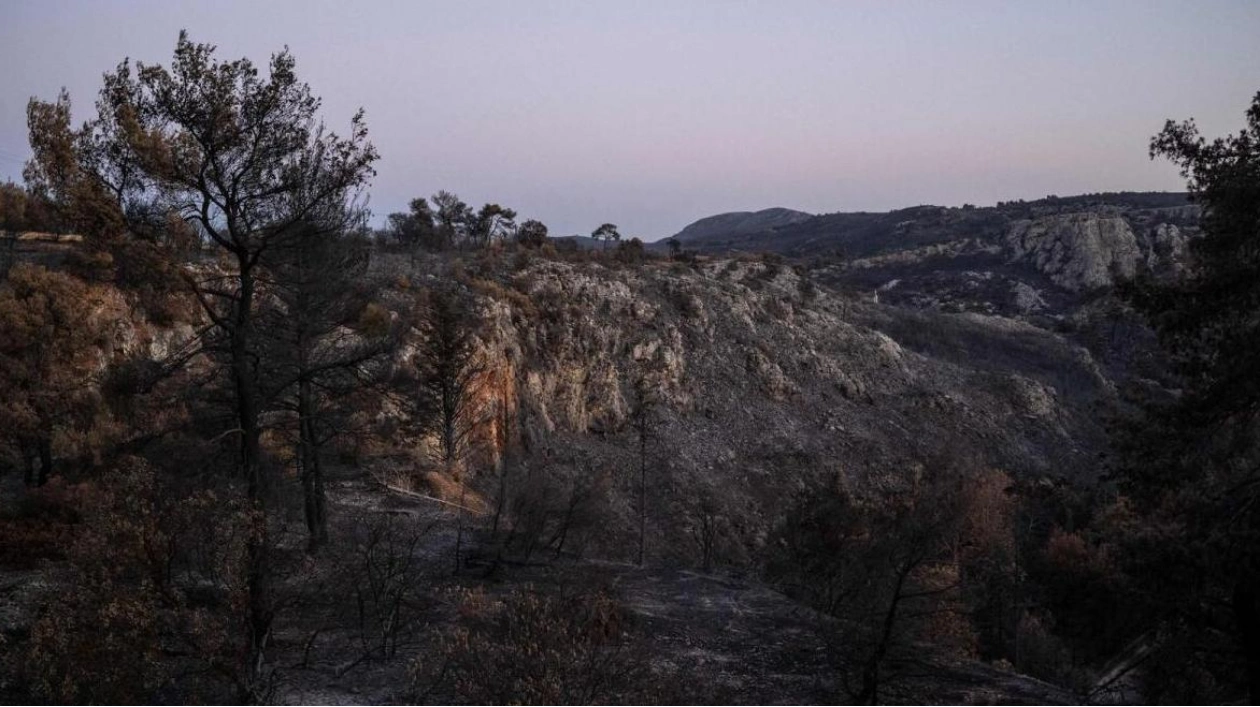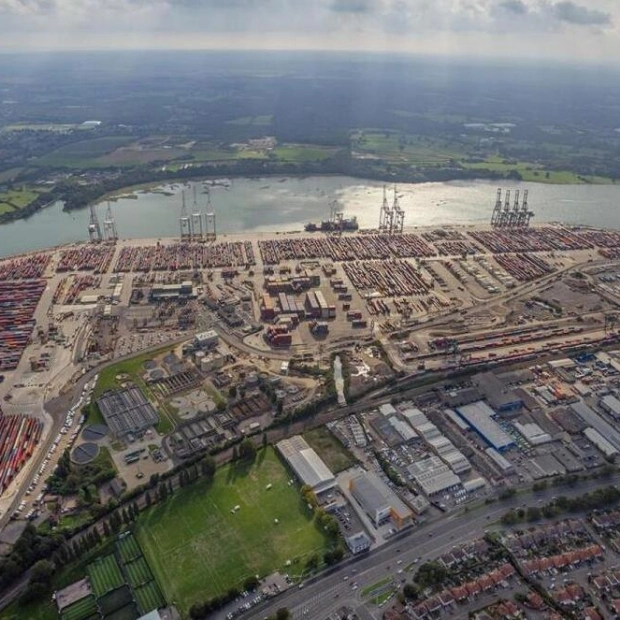Following Greece's most devastating wildfire this year, which left a lingering smell in its suburbs, experts warn that Athens now faces threats of floods and pollution. Thousands had to evacuate their homes as the enormous fire, which raged uncontrollably for three days, approached the capital earlier this month, destroying houses and cars and claiming the life of one woman. Driven by strong winds, the fire that started in Varnavas, 40 kilometers northeast of Athens, reached the suburbs at the base of Mount Penteli, ravaging approximately 10,000 hectares.
With over a third of the Mediterranean country's 10 million population residing in the Attica region surrounding the capital, and the fires steadily encroaching closer to the city, experts are issuing critical warnings. The National Observatory reports that 37 percent of forests around Athens have been destroyed by fires in just the last eight years. Alexandros Dimitrakopoulos of Aristotle University of Thessaloniki states, "Attica has lost most of its forest, and now there is an imminent danger for the people of Athens due to a polluted environment and the risk of flooding from soil erosion." Professor Dimitrakopoulos describes how a century ago, robust pine forests thrived, but now only weak, low pines and evergreen shrubs remain.
Fire meteorologist Theodore M. Giannaros of the National Observatory highlights the worsening situation due to frequent torrential rainfalls, warning of potential soil erosion and flash floods during the upcoming winter. Dimitrakopoulos also notes that the loss of forests will exacerbate Greece's already extreme summer temperatures, which this year reached record highs in June and July. Scientists attribute the increasing duration, frequency, and intensity of global heatwaves, and consequently wildfires, to human-caused fossil fuel emissions.
Fire ecology expert Dimitris Kazanis emphasizes that "Attica can't lose more forest; the percentage is diminishing year by year. A solution must be found." He underscores the need for forests in an area dominated by cement, roads, and noise. However, frequent fires are hindering the forest's ability to regenerate. The Varnavas fire affected an area of Aleppo pine, a species adapted to fire but requiring 15 to 20 years between fires for natural regeneration. Ecology professor Margarita Arianoutsou points out that frequent fire events in the area have already caused significant issues, necessitating human intervention for restoration.
Prime Minister Kyriakos Mitsotakis has introduced measures including reforestation and fire prevention studies. Some advocate for planting different tree species, as pines burn rapidly due to their resin. However, forester Nikos Georgiadis from the World Wide Fund for Nature argues against demonizing pines, suggesting instead the creation of a more resilient, mixed forest with less flammable species and green belts to protect both forests and human settlements. Experts also criticize the urban expansion into forest areas, noting that where trees are burned, houses often emerge. Most Greek fires are human-caused, either through arson or neglect, with investigators suspecting a faulty electricity pole may have ignited the Varnavas fire.






